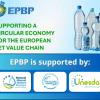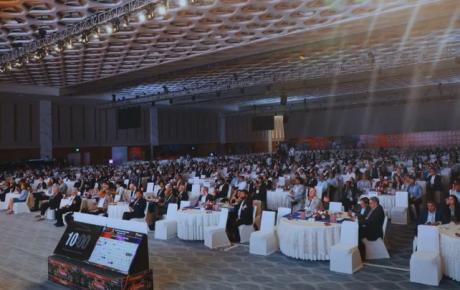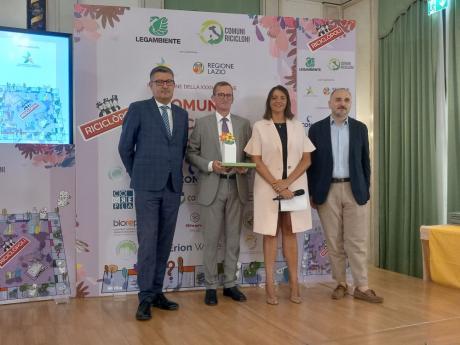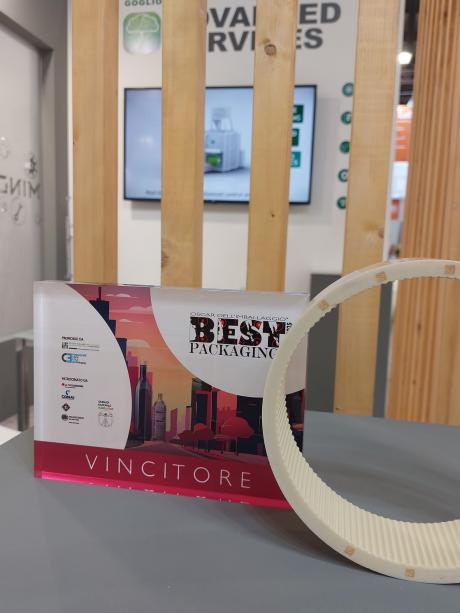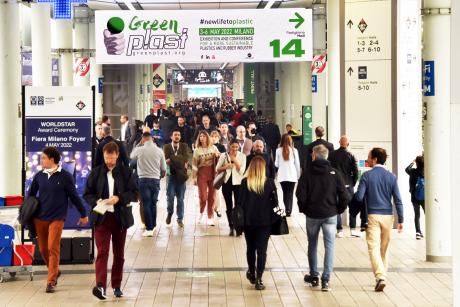While waiting for The Innovation Alliance, which next May at Fiera Milano will host simultaneously Ipack-Ima, Print4All, GreenPlast and Intralogistica Italia, an International Summit was held to take stock of trends, policies and benchmarks in the field of environmental sustainability and artificial intelligence.
Circular economy is everyone's responsibility, from the individual citizen who recycles a plastic bottle - we’re still at a 9% recycling rate worldwide - to the industrial sector. A business choice, that is not just ethical or social, but the only choice able to bring profit in the long run considering the growing sensitivity developed by the final consumer.
Whether the production is innovative packaging, lamps, food or beverages, or if it’s an automotive or logistics company, today many industrial realities around the world have already decided to embrace new paradigms, to rely on different production models and invest resources to train skills within their companies, so that production can contribute positively to the future of the entire planet, reducing the impact on future generations.
A different concept of doing business that can no longer be ignored and must be encouraged through the definition of common standards, but also of a European and local legislative support, which, combined with a greater culture and awareness, can represent a concrete accelerator of change. It's no coincidence, for example, that in those cases where the focus has been on identifying individual responsibility, plastic recycling reached 97%. Because the goal is precisely that: transforming waste and production waste from a critical issue into an economic opportunity.
That’s what emerged last 23 March from the speeches made by institutional figures from the European scene and CEOs from industrial realities during the Circular Economy Summit - Artificial Intelligence and Circular Economy models: towards a regenerative industrial ecosystem.
Organized by Business International, a division of Fiera Milano specialized in planning and implementing events and training, the Summit was an opportunity to launch the return of The Innovation Alliance, the trade fair event that - from 3 to 6 May, 2022 - will host four shows - Ipack-Ima, Print4All, GreenPlast, Intralogistica Italia - held together at Fiera Milano and united by a single goal: presenting to the market the best of instrumental mechanics in the logic of a supply chain, showcasing the most innovative solutions dedicated to the various industrial production sectors, and starting a shared reflection on the great challenges to which nowadays the industrial world is called to respond, from circular economy to industry 4.0.
European standards and legislation are essential, but so are the associated economic incentives to promote shared policies, foster recycling and monitor waste management. That’s where the PNRR funds are directed, as explained by Laura D'Aprile, Head of Department of Ecological Transition and Green Investment at the Italian Government's Ministry of Ecological Transition.
2.5 billion are destined to circular economy, investments that are also supported by two structural reforms: the national Strategy on circular economy and the national Plan for waste management. In Italy the main goal is to bridge the gap between northern and southern regions, particularly by encouraging proper waste management. 600 million euros are earmarked to create specific disposal hubs for different sectors: electronic waste, paper and cardboard, plastics and textiles.
It is therefore essential to define a target linked to the different regional contexts and to implement criteria and strategic guidelines for individual regions, so as to reduce the existing differences and encourage the construction of recycling plants to reach the goals at European level.
The second part of the Summit featured a round table discussion with CEOs from international industries representing the main production and distribution sectors, who presented the best existing solutions and best practices on a global.
The speeches brought out the importance of three pillars that are key to developing circular economy. First of all, it’s essential to focus on legislation, both in terms of waste management and exchanging waste between countries, as well as for what concerns their international management. Then training is needed, both internal and external, because where there’s “culture” there will be a better recycling management. Finally, Ecodesign is fundamental: the sustainability of a product starts from the very moment of conception, because the design will take into account the life of the product, aiming at a longer life, a possibility of reuse, but also at using processing waste.
With a circular vision, in fact, waste materials coming from wine or chocolate become the basis for the production of energy or innovative packaging, and the surplus of food products in large-scale distribution enters parallel channels providing concrete help against food waste.
Breakthrough choices are also needed: the collaboration with competitors to work on common standards; the decision to invest in new production methods with a focus on sustainability right from the design phase, while at the same time monitoring the sustainability of the entire supply chain, including suppliers; and also the courage to overhaul one's own production facilities. These are important investments, but they will allow us to remain competitive and make a concrete contribution to “closing the loop”.


